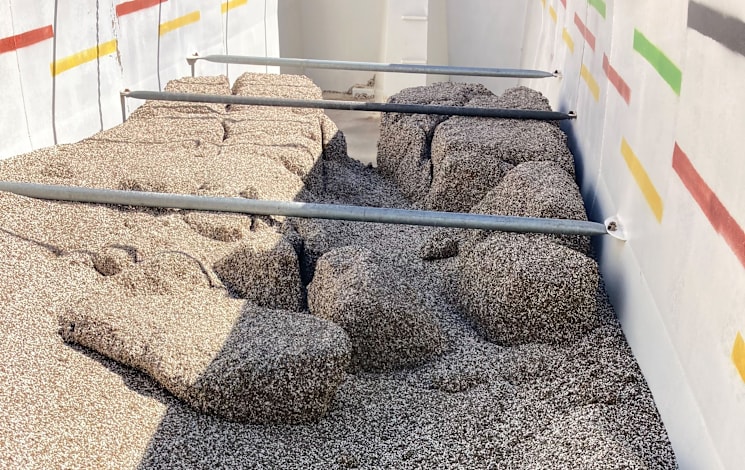Concerns over the quality of bulk fertiliser have been raised by the Grenfell branch of the NSW Farmers Federation, prompting a motion at the organisation’s annual conference on July 22–23.
The branch called for fertiliser companies to take greater responsibility in ensuring their product is “fit for purpose,” flowable, and compliant with Australian Standards requiring minimal moisture, minimal fines and minimal oil added.
This motion was referred to the Agriculture Science Council for further investigation.
Bulk fertiliser set rock hard in trucks and purpose-built storage is one of the situations farmers are confronted with, Harvey Matthews from the Grenfell branch of NSW Farmers Federation said.
This year he's had fertiliser delivered that wasn't fit for purpose - and he's not the only one - so the branch has called for an investigation.
Latest Stories
Mr Harvey identified possible factors including high moisture levels, a high percentage of fines and additional oiling that maybe responsible.
Before taking this to the annual conference, Mr Matthews said they found out that the fertiliser standards are voluntary in Australia.
"This leaves growers with major issues handling fertiliser in storage and creating metering issues during application due to the caking and stickiness of product. There seems to be no quality assurances or quality safe guards in place prior to delivery on farm," he submitted to the conference.
"From an OH&S perspective issues have evolved. Growers are having to use mechanical means to remove product from trucks and storage facilities. The product then has to be treated with a talcum powder application to make it useable."
"[This is] extremely time consuming and dangerous for a product that should have been originally delivered fit for purpose."
With only around 15-20 percent of the fertliser being made in Australia, Mr Harvey said, with the rest being imported from other countries.
Mr Harvey said the fertiliser which they received which was not fit for purpose came from Morocco, and with the ship taking around two months to get to Australia, they can't be sure of the conditions the ship faced during the trip, how the fertiliser was stored, or the weather conditions when the fertiliser was loaded and unloaded.
"When it's delivered up farm there's no standards coming with it, not like if we take a load of wheat or canola it's tested, it's graded and you can not deliver it until it passes the test," he said.
"When the fertiliser comes up to your farm there's an expectation when the B doubles arrive you'll just unload it no matter what it is like."
Mr Harvey said another sticking point which was found out was the fact that there is no clear line when the fertiliser is the responsibility of the trucking company or when the fertiliser becomes the responsibility of the resellers.
"There's no clear line, because there's an expectation that, you know, the stuff will be right. and no one's ever questioned it before," he said.
With it now referred to the Ag and Science Committee who are expected to research the legalities of all of this, Mr Harvey said by next season farmers can hopefully have something in place so that when that truck arrives at a farm, farmers have some sort of a guarantee that the product they're getting is kosher.
















0 comment
JOIN THE CONVERSATION
Read and post comments with a
digital subscription.